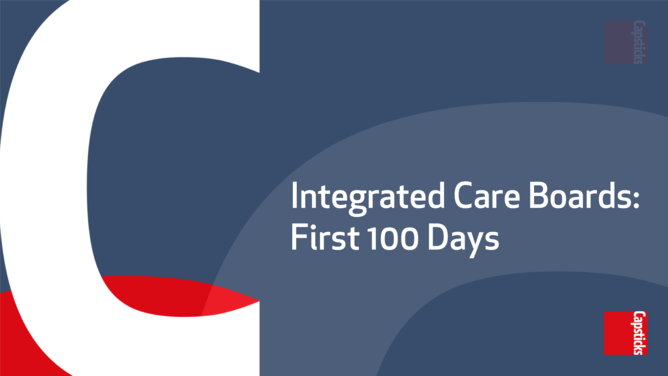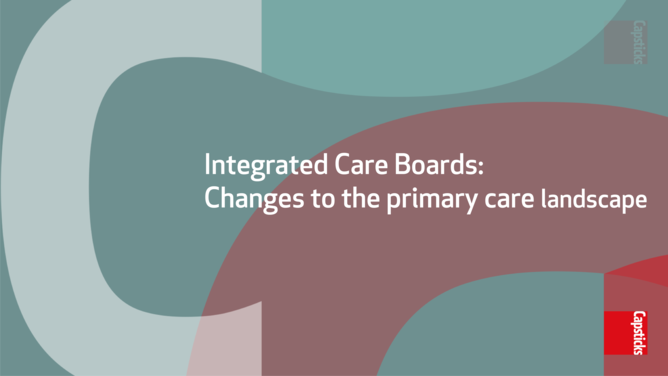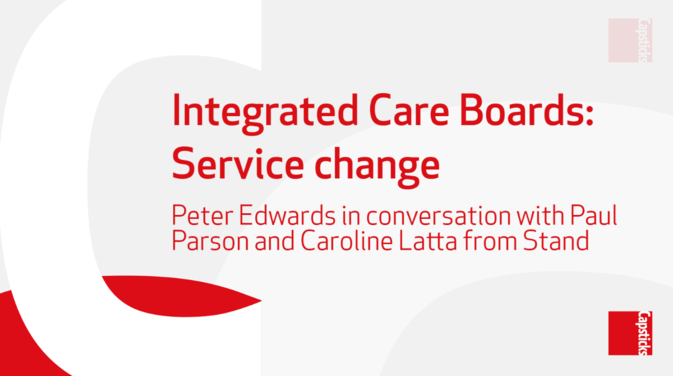Integrated Care Boards: First 100 Days
08/12/22The 1st July marked a very significant change in the structure of the NHS, with the establishment of integrated care boards (ICBs) and the abolition of clinical commissioning groups.
As go to advisors for many healthcare organisations we wanted to share with you information and resources on key issues we have been discussing with our clients since the introduction of ICBs.
Over the coming weeks we will add to this page information on the continuing development of ICB governance, the impact of the Health and Care Act on Primary Care Providers, commissioning of healthcare services and useful information regarding workforce issues, as well as many other topics, so do keep checking back.
If you have any questions or areas it would be helpful for us to cover, please contact Peter Edwards
Integrated Care Boards: Changes to the primary care landscape
The NHS landscape was fundamentally changed with the passing of the Health and Care Act back in April, but what are the implications for primary care? Peter Edwards, Mark Jarvis and Neha Shah discuss the transition from GP led commissioning groups to ICBs and consider how primary care is going to organise itself to have an effective voice within integrated care systems.
Next steps for ICB Governance
Integrated Care Boards (ICBs) were formally established on 1 July 2022 at which point their Constitutions came into effect. ICBs have also prepared Governance Handbooks that sit alongside their constitutions and typically include documents such as the Scheme of Reservation and Delegation (SoRD); Standing Financial Instructions (SFIs) and the terms of reference for those committees and sub-committees of the Board that exercise ICB functions.
The question many of our ICB clients are now asking as they complete their First 100 Days is “what happens next?” In particular, how do they use the powers set out in the Health and Care Act 2022 to breathe life into their local visions of integration of health and care services at system and place level whilst ensuring that they maintain the necessary standards of good governance, probity and transparency?
In this insight we look at some of the areas where ICB Governance will need to develop further as they progress beyond their First 100 Days.
Click here to read the full commentary.
Integrated Care Systems: working together effectively on service change
Peter Edwards, Partner at Capsticks, is joined by Paul Parson and Caroline Latta from Stand. Being actively involved in some of the most challenging health service change programmes in the UK, Stand is a community of experienced engagement practitioners and service change leaders.
In this video, the trio discuss the respective roles of ICBs and NHS providers in consulting with health scrutiny committees and involving the public when progressing plans for service changes. Paul and Caroline reflect upon their own experiences of how providers and commissioners can work together effectively, particularly when major service changes are proposed.
Three things Integrated Care Boards should consider before engaging Clinical Leads
Integrated Care Boards will be taking stock of Clinical Leads needed to support the delivery of its commissioning priorities.
Here, we set out a checklist for ICBs to consider when deciding on what basis to engage Clinical Leads.








